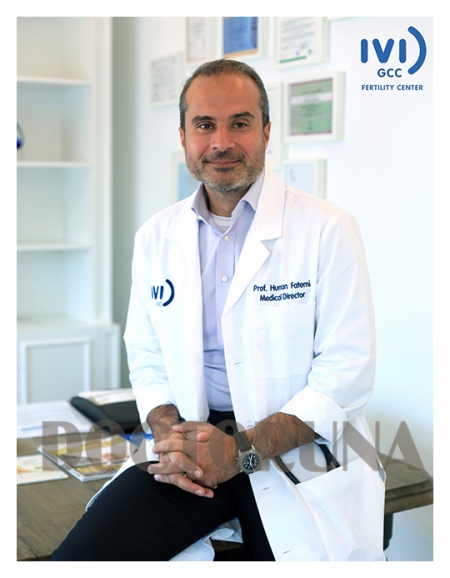Endometriosis is a medical condition affecting millions of women around the globe today. It is a debilitating and often painful disease that is commonly underdiagnosed in women who are in their reproductive age. Further compounding the situation, the disease has an average diagnosis period of about seven and a half years.
All these aspects make it harder for experts to fully establish the exact number of women suffering from endometriosis or, more importantly, diagnose it at its early stages. Estimates put forth by an international body show that 10 percent of women worldwide have this condition.
Fertility expert Dr Laura Melado, IVF Specialist, IVI Middle East Fertility Clinic, Abu Dhabi explains that endometriosis is a condition in which the cells in the lining of the uterus grow in other parts of the body, including ovaries, fallopian tubes, and other parts of the pelvic area, rather than its intended place in the womb. These cells mimic the menstrual process in that they break down and bleed every month. But, unlike in a regular period, the blood doesn’t leave the body properly, until it eventually becomes embedded in the organs of the pelvis. In the field of medicine, this condition is referred to as retrograde menstruation.
Retrograde menstruation is widely used by doctors to explain why endometriosis happens, but it might be other factors. As such, Prof. Dr. Human Fatemi, Medical Director IVI Fertility Clinics stated, “there is no clear-cut explanation of why endometriosis occurs in the first place. Genetics, along with a weak immune system, environmental factors, and metaplasia are among the other causes considered by the medical community”.
Menstrual pain is the most common symptom apart from pain in the abdomen, pelvis, or lower back; pain between the hips and the top of the legs; painful intercourse; and bleeding between periods. Gastrointestinal and urinary symptoms may occur as well if the endometrial tissue begins to occupy the intestine, the bladder, the rectum, or other structures. Some patients may also experience persistent fatigue, discomfort when going to the toilet, bleeding from the rectum, or coughing blood.
The symptoms may vary for different women, with some not even experiencing any of the signs at all.
“Of all its impact, infertility remains the most serious. In fact, 30-50 percent of women unable to conceive suffer from this disease”, Prof. Dr. Fatemi added.
The difficulty in conception generally occurs due the anatomical distortion and adhesions that result from the condition. These adhesions, depending on the severity, may even prevent the egg from moving towards the fallopian tube.
The chance of natural conception in spite of the endometriosis diagnosis depends on whether the disease is classified as minimal, mild, moderate, or severe based on the American Fertility Society Revised Classification of Endometriosis (AFS) score.
For women with severe cases, the chance is significantly lower because of a scar tissue that generally forms in this condition. Moreover, endometriosis also damages the fallopian tubes and ovaries sometimes.
Prof. Dr. Human Fatemi said that there is no known cure for endometriosis to date. The available treatments of the disease, including surgery, hormone medications, contraceptives, and anti-inflammatory painkillers are all meant to manage the symptoms only.
Women, however, should keep in mind that getting pregnant is still not completely off the table, though, it would be challenging. Under the circumstances, it is always best to talk to a fertility expert as soon as possible. IVI Fertility recommends visiting a fertility specialist to women who are in their 20s and 30s and are suffering from endometriosis, regardless if they are trying to get pregnant or not.
“Consulting with an expert empowers them by giving them insights into their ability to conceive and the best treatment options available if the pregnancy is indeed going to be challenging. In-vitro fertilization (IVF) and fertility preservation through egg freezing are part of the options”, further added Prof. Dr. Fatemi.
Getting pregnant is quite easy for some while for others, especially those with health conditions such as endometriosis, it is not always straightforward. With the advancements in Reproductive Medicine, many couples are still being given an opportunity to start their parenthood journey no matter the challenges; and there lies the hope that having a baby is still within their grasp.
IVI Fertility is a leading institution of infertility treatments in the Middle East and has three clinics – Abu Dhabi, Dubai and Muscat. IVI has the highest success rate in the region of over 70% and hundreds of fertility professionals with several years of global experience work together to deliver success for couples.





